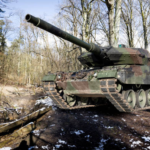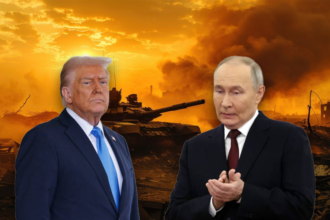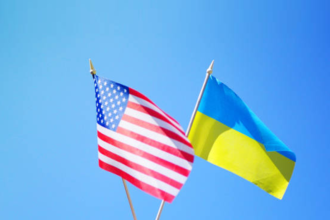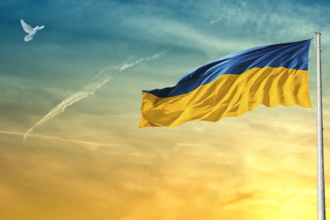A significant fire started at the Zaporizhzhia nuclear power station on Sunday, raising already high tensions between Russia and Ukraine. Under the Russian administration for over two years, the factory became the center of attention for a sharp blame game between the two war-torn countries. While Yevgeny Balitsky, the Kremlin-installed governor of Zaporizhzhia, linked the fire to Ukrainian shelling, Ukrainian President Volodymyr Zelensky accused Russian forces of purposefully starting the flames. Balitsky reassured the public that radiation levels at the facility were constant even with the charges by urging calm.
Following the event, the UN’s nuclear inspector, the International Atomic Energy Agency (IAEA), saw notable black smoke emerging from the plant. The IAEA quickly noted, nevertheless, that nuclear safety had not suffered any direct effect. The agency claims the factory reported an alleged drone strike on one of its cooling towers. Reacting to the circumstances, the IAEA has asked for quick access to evaluate the cooling tower damage.
The fire in Zaporizhzhya strikes during a period of increasing hostility between Russia and Ukraine. Starting a solid attack, Ukrainian soldiers have advanced up to thirty kilometers into Russia’s Kursk territory. Since Russia’s full-scale invasion began in February 2022, this is one of the most important Ukrainian attacks. In his evening video message, President Zelensky emphasized the operation, saying, “Our military is marching into the aggressor’s turf. We are bringing the struggle into its origins.”
The Russian border area has been significantly affected by the Ukrainian onslaught. Unprecedented progress has been achieved by Ukrainian forces, well above the first moves noted by Russian border security. Comprising thousands of Ukrainian troops, the operation emphasizes its strategic relevance and scope. The fighting has displaced more than 76,000 people from the Kursk area; local authorities have declared a state of emergency and established emergency trains to transfer citizens to Moscow.
Kursk Governor Aleksei Smirnov emphasized the critical requirement of prioritizing civilian safety and characterized the situation as terrible. “Our first concern is the dire situation in Kursk and the safety of our people,” Smirnov added. Many of the citizens’ lives have been severely disrupted by the continuous war, which adds to the already great stress the military activities generate.
Declared as a “major provocation,” Russian President Vladimir Putin has denounced the Ukrainian attack. Globally, authorities and organizations are keenly observing the situation as the conflict gets more severe, especially about the fire at the Zaporizhzhia nuclear facility. Early Monday morning, another official nominated by the Kremlin, Vladimir Rogov, declared that the plant’s fire had been “completely extinguished.” Notwithstanding the damage, the plant had not produced power for over two years, and all six reactors had been in cold shutdown since April.
The present situation of the Zaporizhzhia nuclear facility emphasizes the growing risk and complexity connected with the continuous war. Russia and Ukraine keep passing accusations while stepping up their military activities. The plant’s state emphasizes the war’s wider ramifications, possibly affecting world and regional stability.
The world community stays alert although the fire is out and investigations are underway. The changing dynamics of the war and the difficulties presented by events like the fire at Zaporizhzhia helped create a volatile terrain. The way the war affects civilian populations and essential infrastructure like the nuclear plant emphasizes how urgently diplomatic initiatives to handle and fix the problem are needed.
The latest incident at the Zaporizhzhia nuclear power facility has become a significant source of friction in the continuing Russia-Ukraine crisis. Since both sides blame one another and the international community is under tight observation, the situation remains unstable and prone to escalation. The episode reminds us sharply of the broader consequences of the conflict and the necessity of constant awareness and diplomatic initiatives to lessen its influence.
Iranian Missiles Delivered to Russia Shift Debate on Ukraine’s Use of Long-Range Western Missiles








